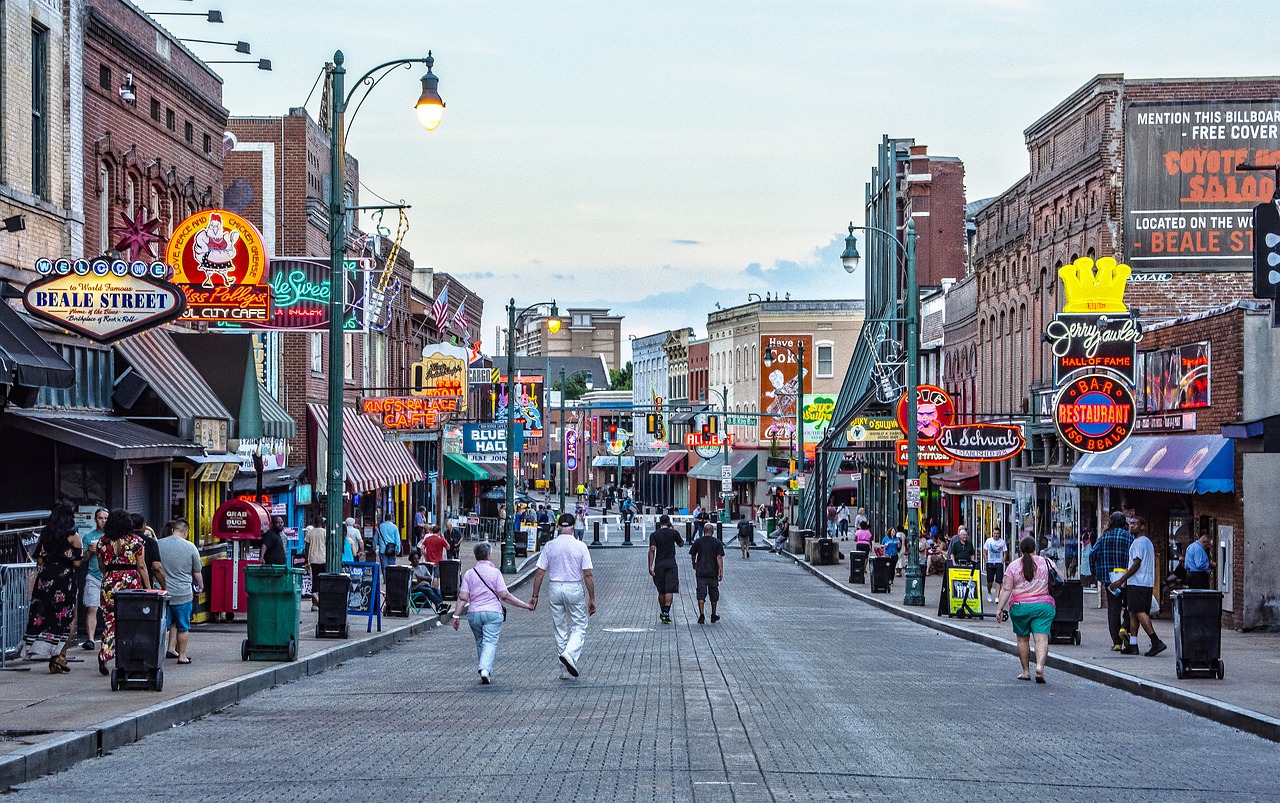America's deadliest city for car crashes is finally getting a transportation advocacy organization dedicated to bringing deaths down and making transportation more affordable and equitable — by unapologetically focusing on making its neighborhoods less dependent cars.
After a study of federal data recently found that Memphis had the highest per-capita car crash death rate in the entire country — and the highest per-capita death rate for pedestrians of any metropolitan area — advocates there have launched a fundraising campaign for a new initiative called Street Fair, which will be dedicated to "advocating for a better transportation system for everyone — no matter how you choose to get around."
Street Fair isn't the first transportation advocacy outfit in town, not to mention Memphis's rich history of citizen-led tactical urbanism. Those groups helped propel the community to the title of Bicycling Magazine's "Most Improved" biking city in 2012, while also fighting for an expanded trolley system and better connections for people on foot.
By the 2020s, though, Memphis had been named the least bike-friendly city in the country, and much of that trolley system had gone offline, even as mode-specific advocates for walking, biking, and transit continued to proliferate. Now, StreetFair hopes it can bring all those folks together with advocates for accessibility, smarter development and alleviating poverty to create a powerful force for change that can stand the test of time.
"We're really hoping to create a central space for all these different folks touching transportation in different ways to come together, to have a stronger, more cohesive, and amplified voice," says Jackson McNeil, transportation and mobility director for Innovate Memphis, which launched Street Fair.
"[It's about] advocating to our local government and our state government, but [it's also about] educating our neighbors about things that we can all do together to create a better transportation ecosystem."
McNeil says Street Fair actually evolved from a more-traditional workplace commuting initiative, which focused on "individual behavior change to incentivize and work with big employers to get their employees to take different modes of transportation."
But in a city that's so car-dependent and so poor that drivers spend an average of 30 percent of their income on transportation, that approach just wasn't working. For the one in 10 Memphis homes who don't have access to a car at all, things were even worse.
"It became very clear that it's a real challenge to convince people to change behaviors if there aren't safe, convenient options for them to try," McNeil says. "We have lots of neighborhoods that are very disconnected because of the lack of safe, convenient, affordable transportation options — [especially] if you're not fortunate enough to be able to afford a car in your household."
Solving the traffic violence problem, though, has often taken backseat to Memphis' other civic challenges — and particularly those that are more palatable to the powerful.
By 2024, the city topped the list of large U.S. communities with the highest per capita rates of violent crime like murder, rape, robbery, and aggravated assault, though those number dropped to a 25-year low the next year; at the time of this writing, President Trump appeared poised to deploy troops to the city anyway.
"Because we are such a car-dependent city — and people with means and resources and political influence primarily drive cars — there can oftentimes be [people who say] 'That's not a problem that impacts me; that's not as important as some of the other issues we have in Memphis,'" McNeil adds. "We have a pretty serious public safety problem in general; when you have 200 to 300 homicides in a single year in our city, oftentimes roadway deaths and crashes can get overlooked."
To bring the car dependency problem back into the spotlight, McNeil is looking to models of successful advocacy organizations like Walk Bike Nashville, which helped pass a historic sales tax increase that will generate an estimated $3.1 billion for walking, biking and transit upgrades over its lifespan.
If Street Fair can score wins of that scale in Western Tennessee, too, it will do a lot to make Memphis streets more fair — even in an era when words like "fair" and "equitable" have become anathema to many red-state politicians.
"We imagine a more fair Memphis as a place where you don't have to have a car to access opportunities; where you can walk to your neighbor's house safely, not having to worry about getting hit by a car; where you can use public transit to get wherever you need, and it's convenient," McNeil says. "In a city like Memphis that has long-standing struggles with high poverty rates and lack of access to opportunity, we have to make the transportation system more fair and just and equitable before we can take steps forward [to ease poverty]."
"You can create a job, but you have to be able to get to that job," McNeil continued. "You can create good schools, but you have to be able to get to those schools safely."
An earlier version of this story referred to Innovate Memphis as Innovative Memphis. We regret the error.






